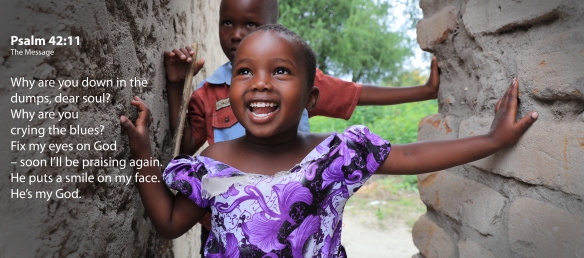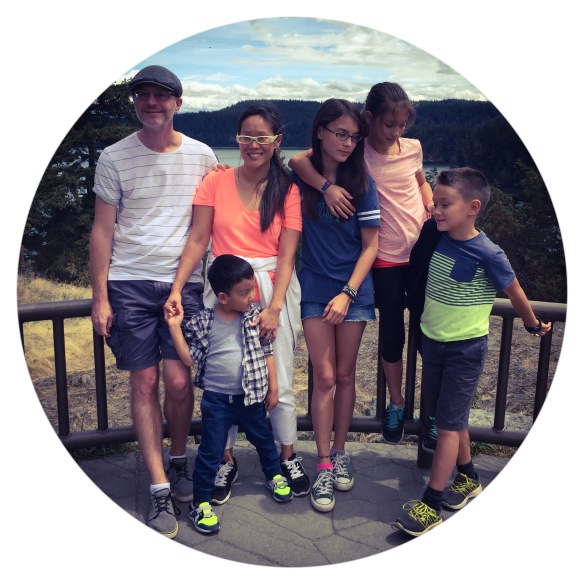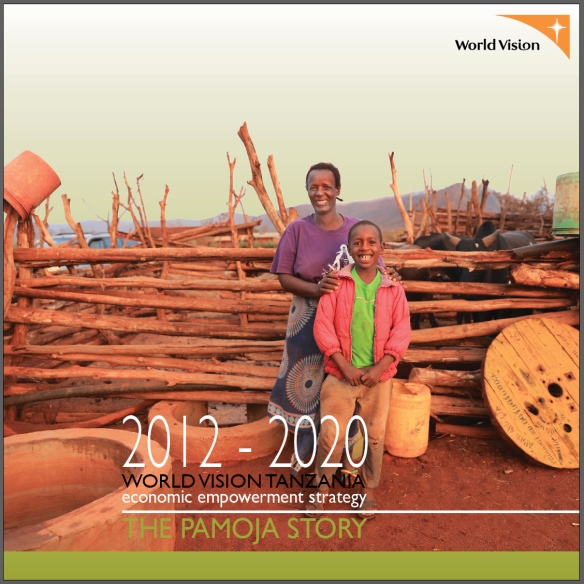Trips to the field are never the same even if you’re returning to a repeated location. I’ve learned now that it’s best to expect to encounter something unexpected and adopt a bit more of a passive, “let’s just see how it all plays out” adventure-attitude, rather than approach the day expecting to tick off a series of hard-hitting to-do’s. Mentally those lists become more like wish-lists….and I just have to leave it as that.
Outwardly I may come across as a pretty fluid sort of person sometimes, but it’s not how I’ve always been and it’s not how I was used to working before I came here. I still can’t stand last minute changes; I get irritable and belligerent with people around me, but there is something about coming to terms with approaching things that you know from the get-go are out of your control. Somehow I’ve learned to let go.
This “come what may” attitude has been a spiritually strengthening exercise for me, to let God lead and see what happens. It’s a reminder to me every time I embark on a given task (especially when logistics seem beyond my control) that’s it’s really God’s work and ultimately it’s relationships that are important to Him (I think). He will make happen and get done what He needs done, in His time, with the people He wants to use. And struggle and try as I might, I need to leave it at that. Every farmer story I have manage to collect and finish is a miniature miracle in and of itself.
Before we came here I remember talking to a friend who told me that what she loved about her days in Zambia was the fact that every time she stepped out of her house, there was an adventure waiting. That sounded like a bit of an exaggeration to me at first and I wasn’t sure if I thought that was very appealing. What sort of adventure is she talking about? Do I really want an adventure every day? Is that going to make me want to just stay home?
You might be asking, “what are you talking about, why is your life so out of control?”
First of all, I don’t speak enough Swahili so I’m 100% reliant on others around me to set things up and translate, so that automatically decreases the level of control for me.
And some realities that are germane to life in Africa just aren’t things you encounter back home. The norm is to have no reliable electricity, which means often no reliable wifi or light at night or means to charge your computer or phone battery or any battery! No phone? What a crippling thought! No power for 6 hours can set you back on a days-worth of email or work, all sorts of communication not to mention hours lost on trying to figure out what the problem is and how if possible, to fix it. In our household it means no instant push button coffee in the morning, having to use matches to light the stove, having no fans in hot weather, limiting how many times we should open and close the refrigerator, using solar flashlights at night and no use of the laundry machine with a family of four active kids. A repeated common topic of conversation among expats is what sort of back-up system we use at work and at home to deal with this aspect of living here; diesel generators, batteries, solar or wind energy solutions. For some farmers it’s biogas!
Piped water is a very new concept and only ‘reached’ our house a couple months ago, which means for us, that when we finish the 100,000L underground storage tank of rainwater caught from the drains on our roof we can refill our storage system with water from a tap. We’re now charged according to how much we use, which amounts to something like $15/month. We buy our drinking water in 10L drums that we switch out and reload onto our dispenser. They cost about $2.5 each.
Gas for our kitchen stove is bought by the tank, which needs to be physically brought back to the shop and traded for a filled tank. Phone credit similarly is bought in bundles that include or exclude data depending on what package you purchase. Our home internet service is similarly bought in 3 month bundles that need to be paid for in person. Basically, everything and anything that can run out, will run out and it is like a logistical obstacle course to have basic functions that we take entirely for granted when we live in the US.
A missionary described it to us as having to exert three times the effort (that one normally would back home) in order to just stand still. That is what the struggle of living in Africa is like. For an expat. We are some of the fortunate few who have the means, who have college degrees, who have jobs who can already feed their family every day.
We admire the people who have decided to absorb these challenges and settle here as long-timers. They’re truly cut from a different cloth.
I’ve been trying the last few months to make a short film about the impact of THRIVE in Tanzania, about how Economic Empowerment, the way World Vision is implementing it and how it is really bringing change to the lives of farmers and especially to the lives of children.
As a filmmaker or videographer unless you want to waste your time, the time of all the people around you and lots of money and shoot endless hours of useless footage, when you embark on a video or film project, each shoot is like planning for an exotic overseas vacation. It’s normally meticulously thought out with a lot of research and pre-interviews over the phone. Shooting schedules are drawn up, scripts and “possible” interview scenarios are mocked up before you even begin to charge your first camera battery. I was immediately stressed when I got this assignment because I knew how much of this required figuring out on the fly because of the African context in which I was working.
There were so many hurdles to overcome in even getting it started. I needed staff to help me find a girl who was not shy (ideally), not too old, who could read and write, whose family had undergone an enormous and radical change through the help of World Vision training – the more radical the better, right? Ideally she would live not too far from her school so I could encompass that element of her life and that the family in general wouldn’t be too far from Arusha so I would be able to go back easily for pick-up shots. Unbelievably, it took about 6 months to find her. I was completely reliant on WV staff to source the right person for me in their spare time and I really didn’t feel I couldn’t push. I’m embarrassed to admit but 20 years ago I might have picked up the phone and started shouting at someone after the one month mark. After learning from my mistakes from my younger self and from the sheer number of years of trying to get things done in China, I’ve finally internalized that nothing will get done if I don’t look after the relationships around me. Which brings me back around to confirming that our work is so much about relationships in the end. Conversely if I think about what good might actually come about if my work goals became secondary to the work of building up the people around me – well, it’s a very hard balance to walk when you need to get something done and have a deadline.
When eventually I got the green light, that a girl had been sourced, I was coming up so close to my deadline that I felt I couldn’t afford to get fussy. She lived 4 hours away by car. I knew it was this or nothing.
I ended up visiting her family 4 times. The first was just to get her family’s story, the second was supposed to be with a drone camera, but that fell through at the last minute so I scrambled to film everything else I could think of like interviews and illustrative cut-aways and sequences that could be used for B-roll. The third time when the drone was ready, no World Vision staff were available to help with translation (I’d already made a map of how to get to her house on my own). It just so happened that the weekend before going I ran into a colleague of Josh’s who was also a friend. He really wanted his sister and wife to come along for the ride the next time I went out to the field, so I invited them along. It turned out that our friend’s sister spoke fluent Swahili and even knew the drone operator also spoke fluent Swahili even though they were both wazungu’s (white people). The farmers got such a kick out of their ability to speak and were also fascinated by the drone. That trip worked out beautifully in picture and relations. And a month later, the final time I visited the family I brought along Esther who is the US donor liaison because she had decided to write a quarterly story about the same farmer. When we arrived to show the family the final film (and shoot one more pick up sequence) we found that my main subject the little girl had been sent off to Dar Es Salaam to continue her secondary schooling living with her aunt…something the family didn’t think to tell us on the phone before we arrived! Fortunately, it all worked out divinely and we managed without Sauda, my main girl.
I’m not writing all this to complain, but to speak to how ‘rolling with the punches’ is kind of mindset one has to adopt here. Or another way of looking at it is if your attitude is to turn yourself around and look regularly and expectantly for the ball from out of left field, you’re far more likely to catch it and win the game. It kind of becomes a game!
Driving back to Arusha I was exhausted but filled with the satisfaction of another meaningful day out in the field. On this trip we also met the Village Chairman who confirmed the great work of Haridi, (the father) through the integral help of World Vision and that this movement is indeed an important one and one that will mean huge welcome changes for everyone. Esther and I bubbled and chatted about World Vision and about life as Peter zipped us back along the highway. It was another good day and it was a good end to my little video project. Looking out at the road, we noticed wet patches and when we rolled down our windows we realized that the smell in the air had changed. It had been raining in the valley. Finally! I love the smell of fresh rain and I breathed it in deeply as eagerly as the parched ground around us.
In our year and a half living here, apart from meeting and getting to know farmers and their families in person, the other thing I absolutely love and find myself getting lost in is admiring the landscape and all the nature that surrounds us. My canon camera cannot do it justice or capture it fully. Maybe someone else has the skill to but at the moment I don’t have what it takes. Seeing the environment in different seasons, watching sunrises and sunsets with silhouetted acacias or baobabs is mesmerizing. Catching the little moments of children playing in lakes, grown Masaai men chasing after a run-away cow, dust willies (as the Australian’s say) which are mini-tornados of orange dust that travel like dancing columns across the grasslands, Maasai boys displaying their rite of passage in groups wearing all black, with black and white decorated faces and ostrich feathers protruding like long horns from their heads, watching children play on makeshift tire swings outside their homes …the list goes on and on. I love it! Spying snippets of everyday life and having everything I see make more and more sense each time I drive by has been not only entertaining, but very satisfying. I feel like my understanding of Tanzania as a country and as a culture has grown in pace with life itself here; slowly or polepole. A truism to Tanzanian culture seems to be: What’s the rush?
I suppose the rush is when we consider in our ‘developed world way’ that time is money. And money is like a two edged sword; you can relax when you have it but you can’t have it if your too into being relaxed. I have appreciated learning to be more relaxed with my time and goals, and I think that has been an important learning for me. On the other hand, some progress here is probably held back because of a lack of timeliness and efficiency.
But this is not just about my work, it’s about the potential for development in general. Farmers take out loans from VisionFund, which they have to pay back with interest. If they work hard and fast, they will earn a good income for their families. If they don’t have a sense of urgency and take their time with whatever entrepreneurial effort they are funding from their loan, they won’t be able to pay it back and their progress will be stalled. The consequences of a polepole culture are all around: in the government, in businesses, in communities and even in NGOs.
I don’t know how to handle the contradiction between the need for Tanzanians to adopt a culture of western norms for work ethics versus my desire to respect and preserve a culture that prioritizes community and relationships above getting stuff done. Perhaps this tension will always exist, and those who navigate through the contradiction with understanding and respect for both sides are those who will have the greatest impact in bringing about progress.
In any case, I would like to share with you my video called ‘Sauda’s Letter’, named after a girl who benefited from World Vision’s economic empowerment work. It was a project commissioned by Tim and made possibly only through the long-suffering work of WVT field-staff, agronomists, project facilitators and drivers…like Herbert, Anopile, Anthony, Lilian, Pamela and Esther. Thanks must go to Haridi, Zaharina, Sauda, Omari and family, and also to the perfect voice talents of George, Sayuni and Janielle. The best filming came from Gian the drone operator and Anna and Savannah who were indispensable that day. Most of all I need to thank Tim Andrews to whom we owe our entire existence and experience here in Tanzania and for his brilliant ideas, like to tell the story through the eyes of the little girl Sauda. Enjoy!























 While I was in Babati this week, Stafford, who is one of the Tanzanian agricultural specialists with World Vision working in the Babati region explained to me, “If you are a local Tanzanian and you see jeeps that have the World Vision sign on the side of the car coming through your neighborhood, then you know for certain that you are poor!” One aspect that Josh and I cannot stop being amazed by is the caliber, dedication, intellect, humor and hearts of the World Vision staff we come across, whether in the US or in the countries where the trenches are being dug. They are truly amazing; everyone down to the drivers and receptionists. They are extraordinary people.
While I was in Babati this week, Stafford, who is one of the Tanzanian agricultural specialists with World Vision working in the Babati region explained to me, “If you are a local Tanzanian and you see jeeps that have the World Vision sign on the side of the car coming through your neighborhood, then you know for certain that you are poor!” One aspect that Josh and I cannot stop being amazed by is the caliber, dedication, intellect, humor and hearts of the World Vision staff we come across, whether in the US or in the countries where the trenches are being dug. They are truly amazing; everyone down to the drivers and receptionists. They are extraordinary people.





























